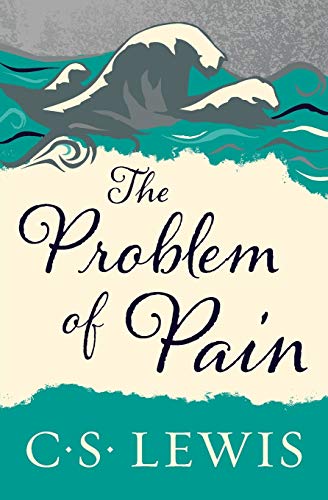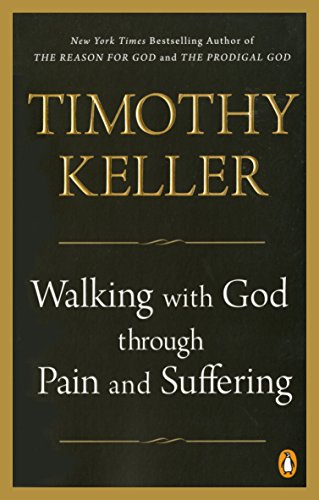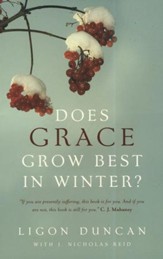Quotes about Suffering-Perspectives
To choose to suffer means that there is something wrong; to choose God’s will even if it means suffering is a very different thing. No healthy saint ever chooses suffering; he chooses God’s will, as Jesus did, whether it means suffering or not.
The Gospel gets really more advantage by the holy, humble sufferings of one saint, simply for the Word of righteousness, than by ten thousand arguments used against heretics and false worship.
A Puritan Golden Treasury, compiled by I.D.E. Thomas, by permission of Banner of Truth, Carlisle, PA. 2000, p. 288.
There is no such thing as luck” or “accident”… We must resist limiting God’s sovereignty in the face of suffering. The comfort of God…is not His empathy with us as someone who feels the tragedy of evil but is helpless in it. Nor does the comfort of God reside in His actions as a “fourth-quarter quarterback,” who is brought in after things have fallen apart to save the day just before the whistle blows. There is no comfort in suffering if God is not sovereign over it. To pare down God’s sovereignty is to render suffering a triumph of evil and sin against the limited will and power of God.
As the wicked are hurt by the best things, so the godly are bettered by the worst.
A Puritan Golden Treasury, compiled by I.D.E. Thomas, by permission of Banner of Truth, Carlisle, PA. 2000, p. 16.
Suffering will end in glory for believers, and prosperity will end in judgment for the wicked.
God the Father by John MacArthur and Richard Mayhue taken from Biblical Doctrine by John MacArthur and Richard Mayhue, copyright 2017, Crossway Books, a division of Good News Publishers, Wheaton Illinois 60187, www.crosswaybooks.org. Page 224.
All the sufferings of the believer are not hell; but they are all the hell he shall suffer.
Jesus is the pioneer [when suffering]. His passion began with sorrow, betrayal, and abandonment: “Father, let this cup pass from me.” The silence of a lamb before its shearers. “My God, my God, why have you forsaken me?” “I am thirsty.” This sufferer loved His enemies, as we are called to do. “Today you will be with Me in paradise.” “Father, forgive them, for they do not know what they are doing.” “Woman, behold your son…Behold your mother.” It wrapped up in commitment and hope: “It is finished.” “Into your hands I commit my spirit.”
Seeing With New Eyes, P&R Publishers, 2003, p. 103. Get this book!
Our little time of suffering is not worthy of our first night’s welcome home to Heaven.
Our sorrows are all, like ourselves, mortal. There are no immortal sorrows for immortal souls. They come, but blessed be God, they also go. Like birds of the air, they fly over our heads. But they cannot make their abode in our souls. We suffer today, but we shall rejoice tomorrow.
[Job’s three friends] simply assumed that sin and suffering are always inexorably bound together in a cause/effect relationship. Whenever and wherever there is one, there is the other. Notwithstanding what they knew to be true about Job’s character, they refused to budge. They refused to allow the possibility that on occasion, as mysterious as it might seem, a righteous man might suffer greatly.
Copied from: Pleasures Evermore: The Life-Changing Power of Knowing God by Sam Storms, © 2000, p. 258. Used by permission of NavPress – www.navpress.org. All rights reserved. Get this book!
My child, trust firmly in the Lord, and do not fear the judgment of men when conscience tells you that you are upright and innocent. For it is good and blessed to suffer such things, and they will not weigh heavily on the humble heart that trusts in God rather than itself. Many men say many things, and therefore little faith is to be put in them. Likewise, it is impossible to satisfy all men. Although Paul tried to please all in the Lord, and became all things to all men, yet he made little of their opinions. He labored abundantly for the edification and salvation of others, as much as lay in him and as much as he could, but he could not escape being sometimes judged and despised by others. Therefore, he committed all to God who knows all things.
God has not promised skies always blue, flower-strewn pathways all our life through; God has not promised sun without rain, joy without sorrow, peace without pain. But God has promised strength for the day, rest for the labor, light for the way; grace for the trials, help from above, unfailing sympathy, undying love.
When God puts us in the furnace, His hand is in the thermostat and His eye is on the clock.
Once we identify our specific struggles as suffering, God’s Word says a lot.
Talk About Suffering by Edward Welch taken from Caring for One Another by Edward Welch, copyright 2018, Crossway Books, a division of Good News Publishers, Wheaton Illinois 60187, www.crosswaybooks.org. Page 56.















